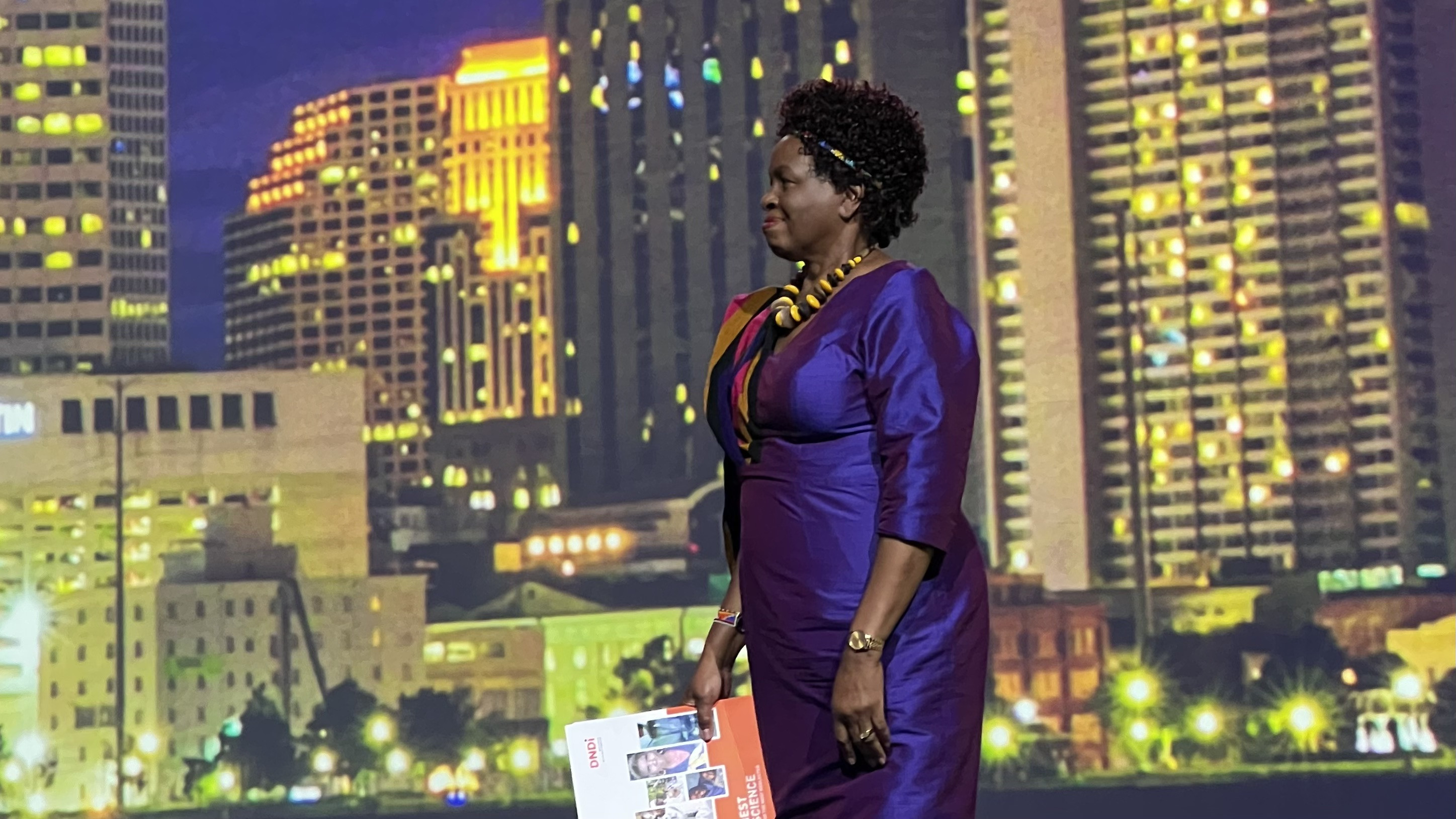ASTMH Annual Meeting 2025
blogMonique Wasunna Calls for ‘Decolonizing Science to Benefit Us All’
By: Matthew Davis, Burness

Celebrating the success of African-led research partnerships and reminding her audience of both the horrors of colonial-era medical research and the deadly “imperialism” of COVID-19 vaccine hoarding, Dr. Monique Wasunna opened #TropMed24 Wednesday night in New Orleans with a passionate appeal to “decolonize science” to ensure that it benefits us all.
“What is the point of making scientific discoveries that save people’s lives if people cannot access them,” said Dr. Wasunna, who is the Africa ambassador for the Drugs for Neglected Diseases initiative (DNDi) and former chief research officer at the Kenya Medical Research Institute (KEMRI).
She began her talk by reflecting on the tragic period of early-to-mid-20th century medical research in Africa. Dr. Wasunna said it was characterized by the exploitation of Africans — and also by “expropriation,” as researchers from the Global North used the knowledge they gained for their own selfish interests. For example, she showed a picture of a long line of young African men lined up to receive a lumbar puncture for a study of sleeping sickness.
“This procedure can kill a patient, yet look at how casually and without care this is being done,” she said. Moreover, she noted, the research was focused on finding a treatment for cows, because they were seen as more important than the African people suffering from the disease.
But Dr. Wasunna said that thankfully, starting in the 1970s and then picking up steam in the 1990s, there has been a renaissance of African-led research delivering breakthroughs for African communities. She pointed to the institutions that sprang up in the 1970s in Nigeria, Ghana, the Democratic Republic of Congo, Tanzania, Kenya and South Africa. She said change also has come in the form of a wider variety of North-South partnerships. For example, she pointed to support she received from a WHO program to pursue her doctorate.
“It blew my mind to be exposed to scientists from all over the world. And I came back to duplicate what I found and give back to my community,” she said.
Dr. Wasunna pointed to three partnerships guided by DNDi as illustrative of the progress that has emerged from decolonizing science on the African continent.
One has led to a new treatment for visceral leishmaniasis, providing a desperately needed alternative to a therapy that had extremely dangerous side effects. A second produced evidence for the efficacy of a fixed-dose treatment for falciparum malaria that combines the drugs artesunate and amodiaquine. The third has involved a breakthrough for treating sleeping sickness: a new medicine that replaces an arsenic-based drug that, Dr. Wasunna said killed “one in 20 patients and was so painful that patients described it as like fire in their veins.”
“For all three diseases, we have learned important lessons,” she said, including the fact that “it takes trust, empathy, partnerships, interdependence and communities to make sure that what we study in the lab reaches people who need it the most and saves and improves their lives.”
But Dr. Wasunna lamented that in much of the Global North, “All of these lessons were thrown aside in the COVID-19 pandemic.” She described the hoarding of vaccines, which was linked to 1.3 million deaths in the Global South, as “another form of imperialism.” She pointed to how South African scientists discovered the emergence of the omicron variants and widely shared their insights – and wealthy countries responded with travel bans.
“All of us in Africa were horrified,” she said, noting that the backsliding has continued with the lack of access to mpox vaccines.
Still, Dr. Wasunna is optimistic for the future. She said efforts like the push to dramatically increase vaccine production capacity in Africa are keeping the continent on the path to decolonize science to benefit us all.
She closed with a special call-out to Africans in the audience who have traveled to New Orleans to attend the annual meeting.
“My brothers and sisters, my daughters and sons, you are the future,” she said. “I am where I am today because someone supported me. Let those of us who have been around for a while support our young colleagues … and connect them to our peers around the world. Let us be their shoulders to stand on. Let us all be each other’s keepers.”
Related Posts
By: Matthew Davis, Burness